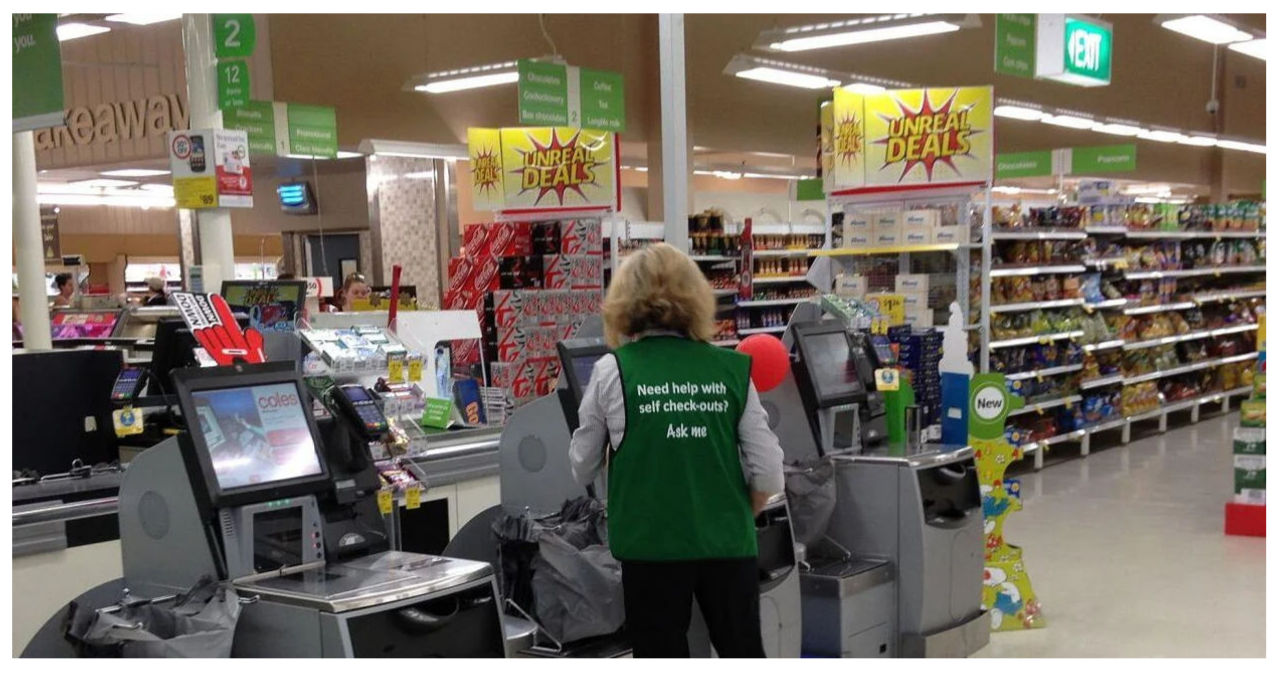California lawmakers are proposing to restrict the use of self-checkout machines, claiming that they are responsible for theft rather than thieves themselves. The bill, sponsored by a union, suggests that there should be one employee assigned to every two self-checkout stands. Additionally, the use of self-checkout machines would only be permitted for customers purchasing 10 items or less. The union also argues that the implementation of anti-theft devices stems from “racial bias.”
Critics argue that thieves, not self-checkout machines, are the root cause of theft. They believe that implementing a mandatory “worker and consumer impact assessment” for each new technology would negatively impact the state’s economy.
The state’s current minimum wage of $20 per hour, though not officially mandated, is effectively acting as a minimum wage. However, this high wage, coupled with the state’s already high unemployment rate, may have unintended consequences. Requiring retail stores to hire additional workers could potentially lead to more closures, further impacting the state’s revenue. This is particularly concerning as California is already facing a significant budget deficit of up to $80 billion for the 2024-2025 fiscal year.
The union that sponsored SB 1446, United Food and Commercial Workers, asserts that self-checkout, rather than thieves, should be held responsible for theft. They believe that the bill’s provisions will bring in a substantial number of new members, benefiting the union.
The union expressed its support for the bill, emphasizing that understaffed stores can lead to theft, assault, and violent incidents.
The bill also prohibits the purchase of items with theft-deterrence measures at self-checkout, even if an employee deactivates the device. The union, in its efforts to reduce the number of locked up items by increasing labor costs for deactivating anti-theft devices, attributes the use of these devices to racism rather than theft.
“The customers are rightfully angered by the racial bias they observe when certain stores lock up specific products, as it implies unfair targeting,” expressed the union.
The California Chamber of Commerce and the California Retailers Association, who are against the bill, argue that thieves are responsible for thefts. They believe that the bill’s mandate for detailed reports on the implementation of new technology would have a significant impact on job roles, hindering innovation and impeding business growth.
The coalition expressed their concerns about the potential impact of excessive regulations on business growth, innovation, and competitiveness in the digital economy. They emphasized the importance of considering the effects of new technologies on employees and consumers. According to the coalition, retail theft continues to occur in stores regardless of the presence of employees at checkout lanes or the availability of self-checkout options.
The coalition has also discovered that the 10-item limit imposed on self-checkout is both unnecessary and detrimental.
In their statement, they expressed concerns about the potential consequences of enacting such a restriction in statute. They argued that it could lead to unnecessary legal disputes and place the burden on retailers to monitor and regulate the number of items being processed through self-checkout lanes. This, in turn, could create tension between customers and retail employees.
SB 1446 has successfully made its way through the Senate Labor, Public Employment and Retirement Committee. Currently, it is in the suspense file for the Senate Appropriations Committee. This committee will evaluate the financial implications of the bill, especially in light of the state’s significant budget deficit.



